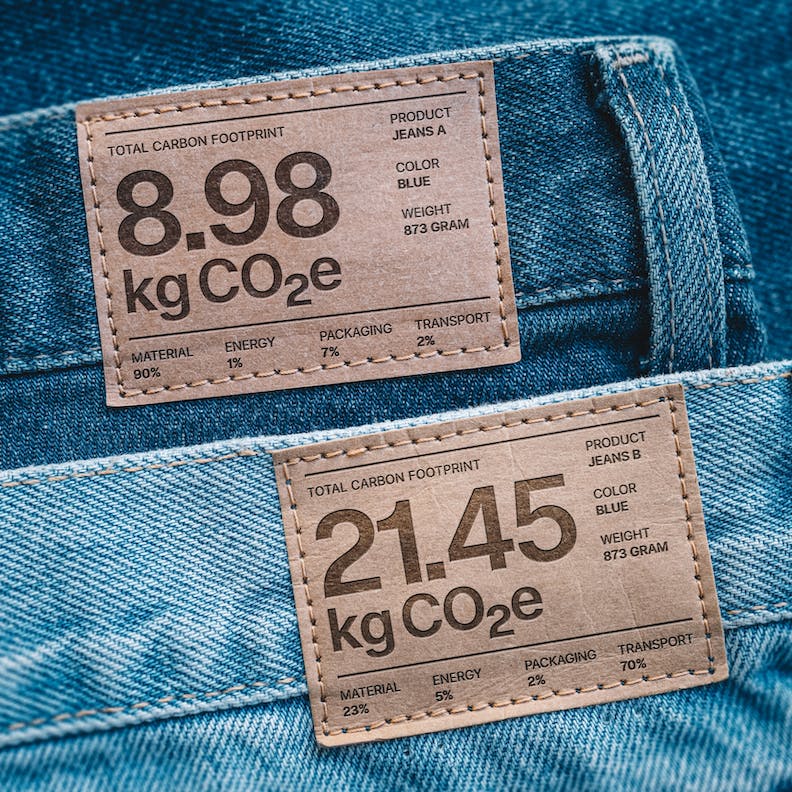The clothing industry is responsible for about 10% of global CO2 emissions. It also has a huge impact on water resources, labour and pollution, which involves a large amount of PFAS (‘forever chemicals’ that don’t biodegrade, but accumulate in the body).
If you have heard politicians and economists going on about how best to tackle climate change, you will have heard of the “carbon price”. This is something that people could pay that makes it more expensive to buy things that cause climate change.
The problem is, such carbon price info just doesn’t exist because government would need to mandate it. I tried to find out which jeans caused the least climate change and so would have the lowest carbon price, but I was unable to find anything.
This is what EcoCounts wants to change, via customer pressure as one means of leverage. Instead right now though, here is a list of the best labels for all sustainability issues. Firstly even better than buying anything new though, repair is best, then second-hand, and then if you can afford to, take a good look at these jeans labels (but try not to break the bank):
And here are the losers to avoid: Asda, Boohoo (Burton, Coast, Dorothy Perkins, MissPap, Nasty Gal, Oasis, Pretty Little Thing, Wallis, Warehouse), Gap, M&S, Primark, Sainsbury’s, Shein, Tesco.
Patagonia is perhaps the most sustainable and definitely the best-known, although they don’t do jeans. It is aiming to phase out PFAS by 2024 and in fact the EU may soon ban the chemicals. Patagonia is transitioning to organic cotton because it uses less water as a crop. It uses an “environmental profit and loss” measure for all its products to determine their sustainability.
Patagonia’s corporate structure is also quite unique – it’s only shareholder is the Earth. By this, they mean that all shares are owned by a non-profit organisation tasked with protecting nature.
To put the challenge of manufacturing sustainable clothing into perspective, Patagonia declared, as they handed over 95% of the controlling company shares to their charity, that they were not sustainable due to the challenges they still faced – they are just the least unsustainable. Encouraging to see their zero tolerance approach to greenwashing.
Other sustainable clothing brands
Other brands with better sustainability include Paramo outdoor clothing, BAM, a bamboo clothing manufacturer and Seasalt, a Cornish clothing company. More can be found in the clothes section on our Top Ten page.
Read the backstory to Patagonia the company, in Fortune magazine.
More from Ethical Consumer on jeans brands: Ethical Consumer

